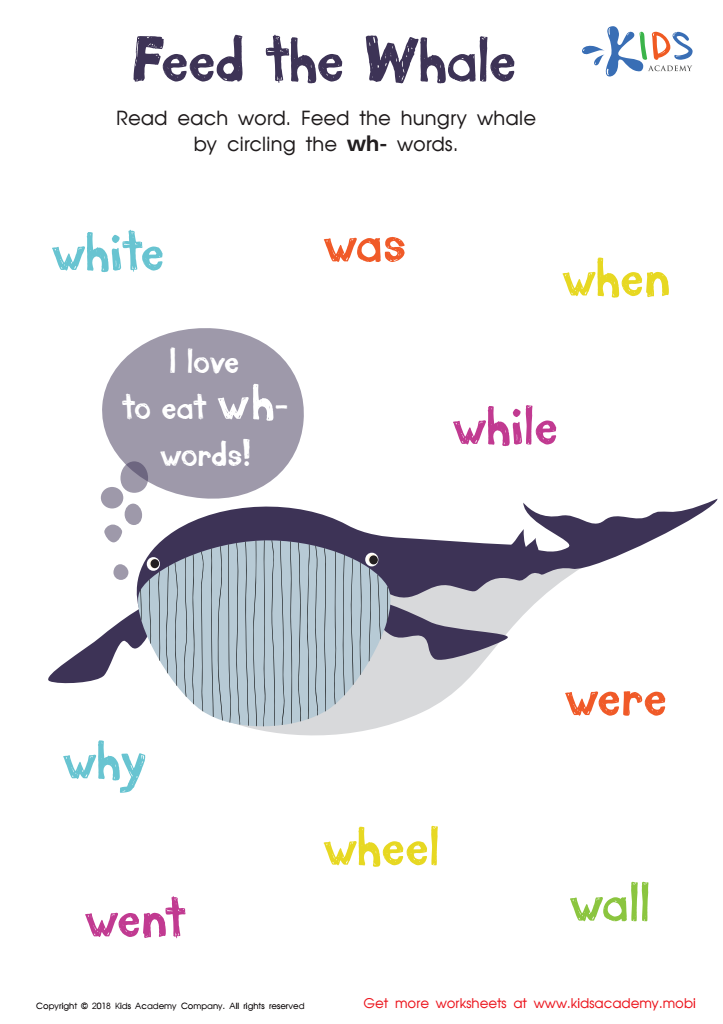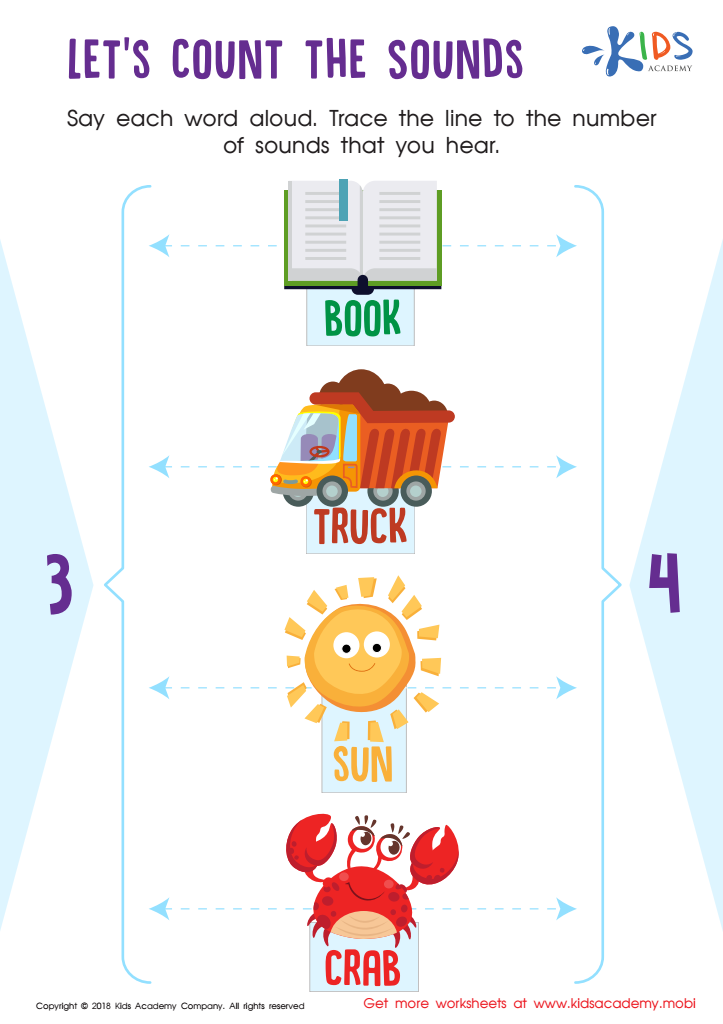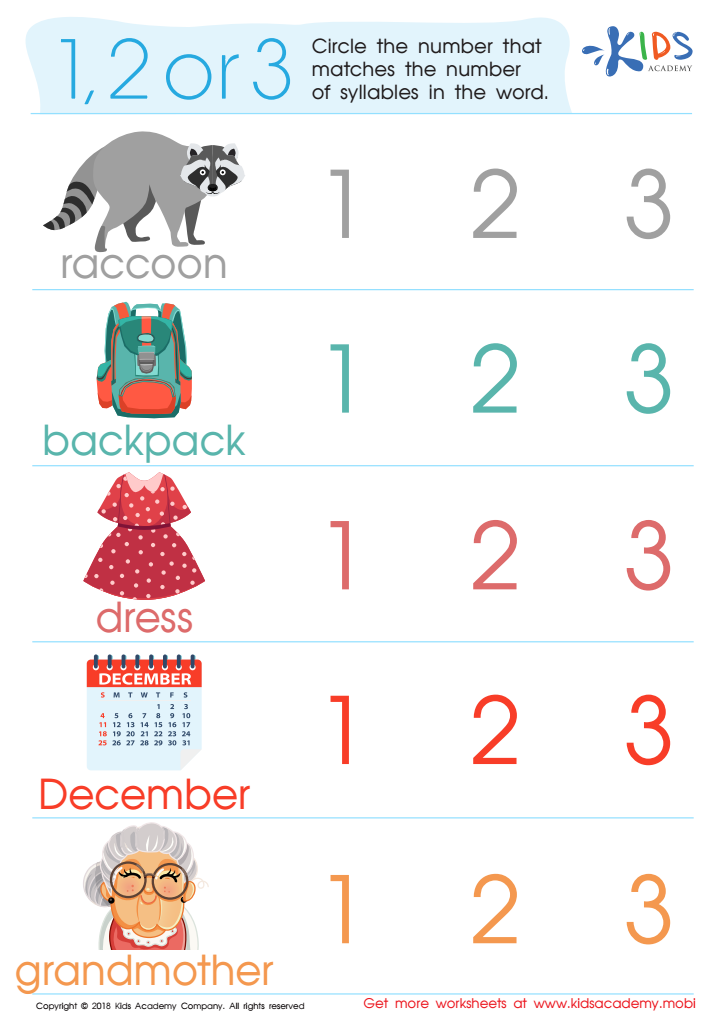Counting skills Alphabet Worksheets for Ages 6-7
3 filtered results
-
From - To
Introduce your child to the world of numbers with our Counting Skills Alphabet Worksheets designed specifically for ages 6-7. These engaging and educational worksheets seamlessly combine learning the alphabet with fun counting activities, making mathematics enjoyable and approachable for young learners. Each worksheet helps to develop essential counting skills through vibrant and interactive exercises, including counting objects, recognizing numbers, and associating them with letters. Perfect for early grade practice, these worksheets aim to build a solid foundation in mathematics while enhancing literacy skills. Boost your child's confidence in numbers and letters with Kids Academy's expertly crafted educational resources.


Feed the Whale Worksheet


Let's Count the Sounds Worksheet


1, 2 or 3? Worksheet
Counting skills and knowledge of the alphabet are foundational elements critical to a child’s early education, especially in the ages 6-7. At this developmental stage, securing competencies in these areas can significantly impact future learning and cognitive growth.
Counting skills serve as a gateway to math. Proficiency in counting helps in understanding numbers, order, and basic arithmetic operations. Mastering skills such as recognizing number symbols, number order, and simple addition and subtraction lays a groundwork for more complex mathematical concepts in later years. Competence in basic math promotes logical reasoning, problem-solving abilities, and even boosts confidence.
Knowing the alphabet is equally critical, as it is the cornerstone of literacy. Recognizing letters, understanding their sounds, and knowing how they come together to form words enable children to start reading and writing. Literacy skills lead to successful comprehension and communication abilities, opening doors to learning across all subjects. Being proficient in reading promotes imagination, information retention, and critical thinking.
Parents and teachers play an instrumental role in fostering these skills through engaging and diverse activities. Prioritizing counting and alphabet knowledge during these formative years creates a supportive learning environment, ensures a solid educational foundation, and sets the stage for a lifelong enthusiasm for learning.

 Assign to My Students
Assign to My Students




.jpg)










